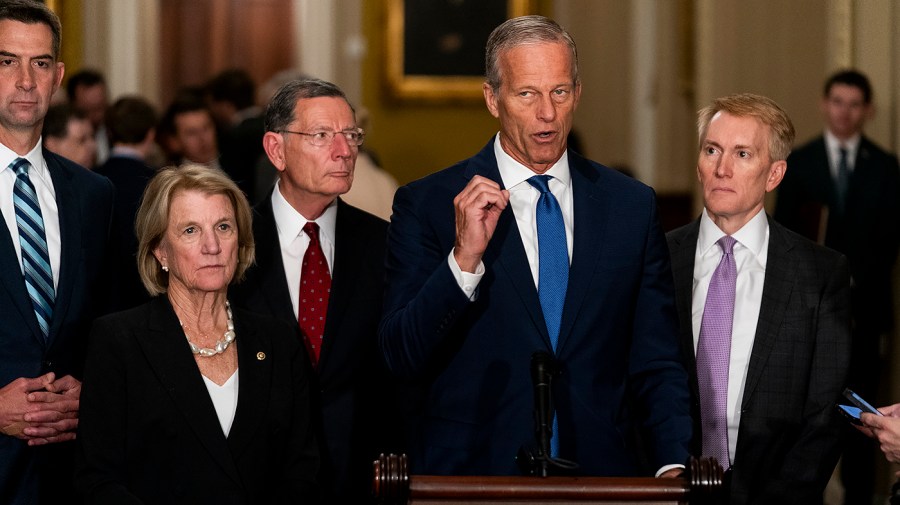The U.S. Senate is grappling with increasing partisanship as the deadline for government funding approaches. Tensions have escalated amid a protracted battle over President Donald Trump‘s nominations for lower-level positions, leaving lawmakers questioning the future of bipartisan cooperation. After lengthy discussions, the Senate adjourned on Saturday night, leaving critical nominations unresolved and prompting Republican leaders to consider significant changes to the chamber’s rules.
The latest round of negotiations aimed at expediting the confirmation of Trump’s nominees fell apart, causing frustration among Republican senators. With the Senate’s August recess looming, some senators are contemplating invoking the “nuclear option,” a strategy that would allow them to alter Senate rules with a simple majority rather than the standard 67 votes required for such changes. This approach could accelerate the confirmation process but would further entrench partisan divides.
Senator Mike Rounds from South Dakota mentioned that discussions have focused on reducing the time frame between cloture and confirmation votes. There are also proposals to eliminate the cloture vote entirely, which would streamline the nomination process. Rounds expressed a desire to change the law to allow a significant number of the approximately 1,200 positions requiring Senate approval to be filled by presidential appointment alone, arguing, “Most members of the Senate will tell you that they don’t believe it is necessary to go that deep into government to have Senate approval on them.”
As Congress faces a looming deadline of September 30 for government funding, the stakes are high. The Senate had previously passed a bipartisan funding package, but the potential for rule changes could complicate future negotiations. Democrats have expressed outrage over attempts to claw back previously appropriated funds, warning that such actions would further poison bipartisan relations.
Senate Minority Leader Chuck Schumer criticized the Republican approach, stating, “The Trump-Republican ‘go-it-alone’ strategy ain’t working, and the American people aren’t happy.” He faces pressure from within his party to resist Trump’s initiatives while also needing to ensure the government remains funded.
The situation is further complicated for Schumer as he navigates his leadership amid local political pressures, particularly concerning the upcoming New York City mayoral race. Polls indicate that he is struggling with approval ratings, with 70 percent of respondents dissatisfied with the direction of the city. This precarious political landscape adds to the challenges he faces in managing the Senate’s priorities.
On the Republican side, Senate Majority Leader John Thune has received praise for his leadership, guiding the passage of significant legislative measures, including Trump’s tax package. Yet, he must balance the push for rule changes with the need for bipartisan cooperation on government funding and other critical issues.
The potential for a rules change has been a contentious topic for years. The late Senate Majority Leader Harry Reid previously altered the vote threshold for lower-court judicial nominees. Following this, Senator Mitch McConnell extended the same threshold to Supreme Court nominees, setting a precedent that has led to increasing calls for further modifications.
While some Republican senators believe that bipartisan efforts could still emerge, particularly with the upcoming National Defense Authorization Act, the prospect of rule changes looms large. As Jon Kott, a former aide to Senator Joe Manchin, noted, “If you turn [the Senate] into the House, you’re gonna lose a lot of the top people who want to be in the Senate.” The growing partisanship threatens the Senate’s ability to function effectively, raising concerns about its future direction.
With critical deadlines approaching and partisanship on the rise, the Senate faces an uncertain path forward. The next few weeks will be crucial in determining how lawmakers navigate these challenges and whether bipartisan cooperation can be revived.
